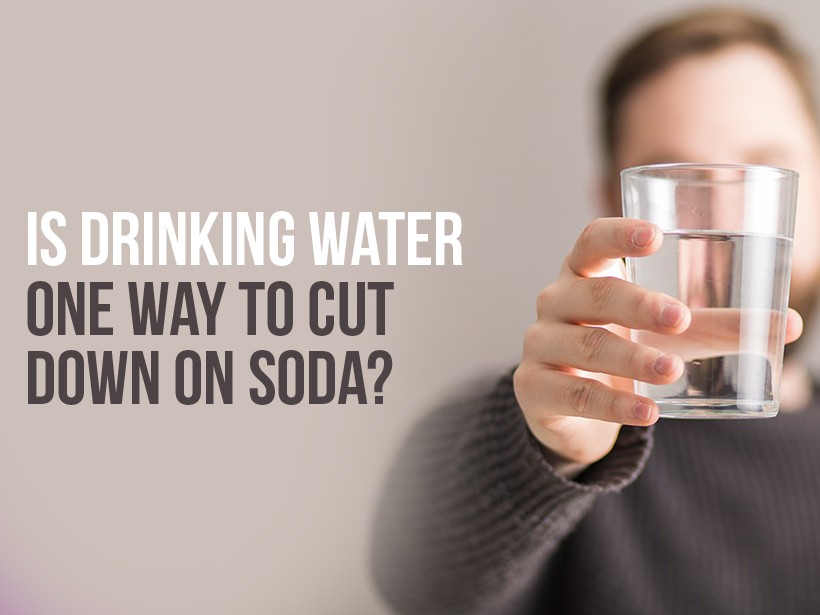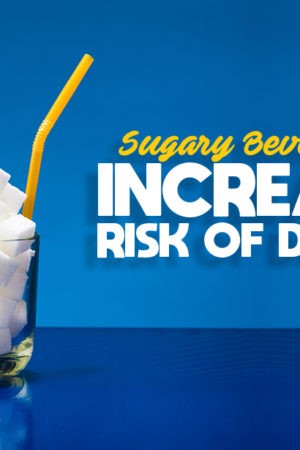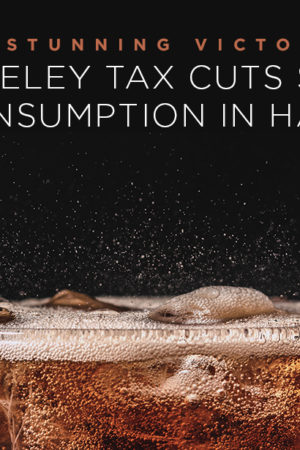The last few years have seen a dearth of studies on the dangerous effects of sugar and, more specifically, sugary drinks. Why, one might wonder, does soda attract so much attention? Indeed, so much interest in the effects of soda consumption has instigated a huge backlash from the industry, which has been at pains to quash suggestions that its products are quickly eroding public health.
The reason for all of this scrutiny is actually fairly straightforward. A recent report by two of the leading medical groups in the U.S. laid it out quite clearly: added sugars are fueling the obesity crisis, specifically among children, and nearly half of an American's daily glucose intake is consumed in the form of sugary drinks. One of those groups, the American Heart Association, also published a study linking sugary drink consumption to premature death.
An obvious antidote to our soda guzzling addiction?
For researchers and health experts, the full picture of soda’s dangerous effects is a work in progress. For the rest of us, however, we hardly need to wait for the last word on the subject to understand quite clearly the high risks and fleeting rewards of soda consumption. This is doubly true when it comes to kids, who are especially prone to becoming addicted to sugary drinks.
A recent study suggests that one possible solution to excessive soda consumption among U.S. children has been hiding in plain sight: drinking more water. Using data collected by the Centers for Disease Control and Prevention in their annual National Health and Nutrition Examination Survey, researchers investigated the connection between water and soda consumption. While the design of the survey prevented them from drawing a causal relationship between lack of water and excess soda, the significant results strongly suggest a connection between the two.1
Avoiding soda starts with healthier habits for kids
The study relies on its most unambiguous figure to drive home its point. From 2011 to 2016, one-fifth of U.S. children reported no plain water intake at all on a given day. The members of this group, however, consumed nearly twice as many calories from sugary drinks as those who drank even a small amount of water. In other words, kids seemed to be replacing water with soda.
“Kids who don’t drink water are more likely to get their fluids elsewhere,” said Dr. Nathalie Muth, a dietician and pediatrician who discussed the study with CNN. “All it takes is an extra 70 calories or so per day for a child to gain excess weight and be at risk for overweight or obesity.”2
Despite the study’s inability to produce a direct link between soda consumption and lack of water, the authors recommend increasing water intake to combat excess caloric and sugar intake. Improving children’s access to safe, free water, they say, could go a long way towards sparing the next generation from our national sugar addiction.
NUTRITIONAL DISCLAIMER
The content on this website should not be taken as medical advice and you should ALWAYS consult with your doctor before starting any diet or exercise program. We provide nutritional data for our recipes as a courtesy to our readers. We use Total Keto Diet app software to calculate the nutrition and we remove fiber and sugar alcohols, like erythritol, from the total carbohydrate count to get to the net carb count, as they do not affect your blood glucose levels. You should independently calculate nutritional information on your own and not rely on our data. The website or content herein is not intended to cure, prevent, diagnose or treat any disease. This website shall not be liable for adverse reactions or any other outcome resulting from the use of recipes or recommendations on the Website or actions you take as a result. Any action you take is strictly at your own risk.
- California Pushes for Cigarette-Like Warning Labels on Soda - July 1, 2019
- Is a Slowdown in Australia's Sugar Consumption a Sign of More to Come? - June 24, 2019
- Groundbreaking Study Says the Sugar Rush Doesn't Exist - June 12, 2019































